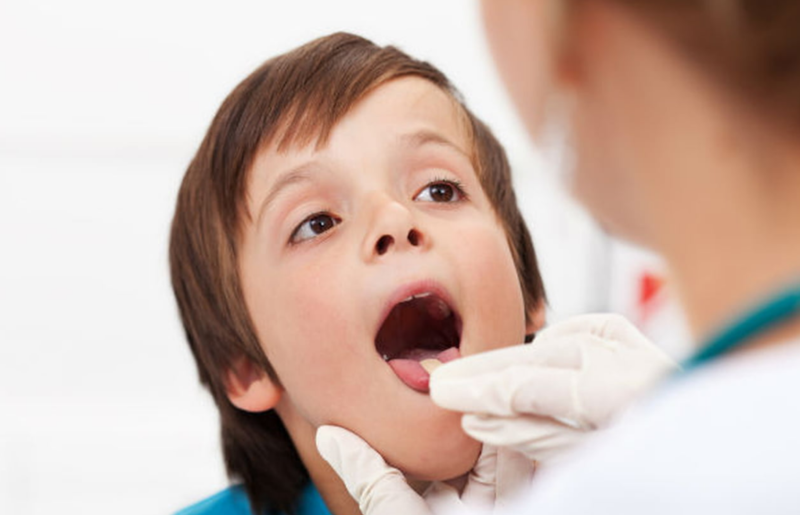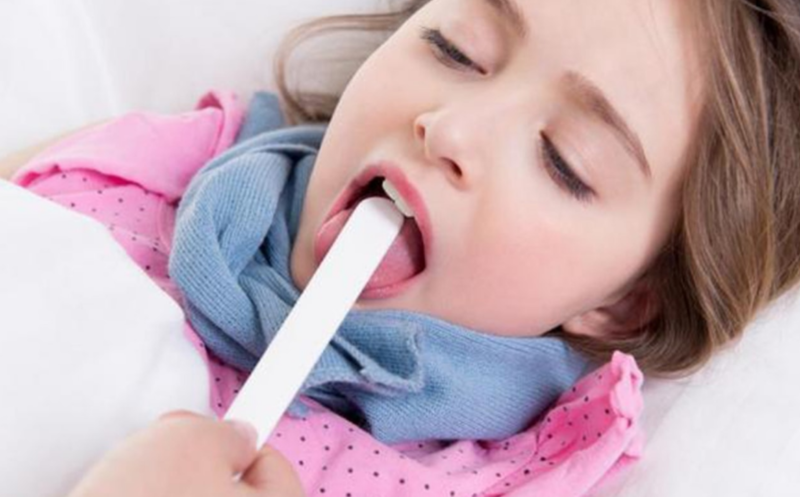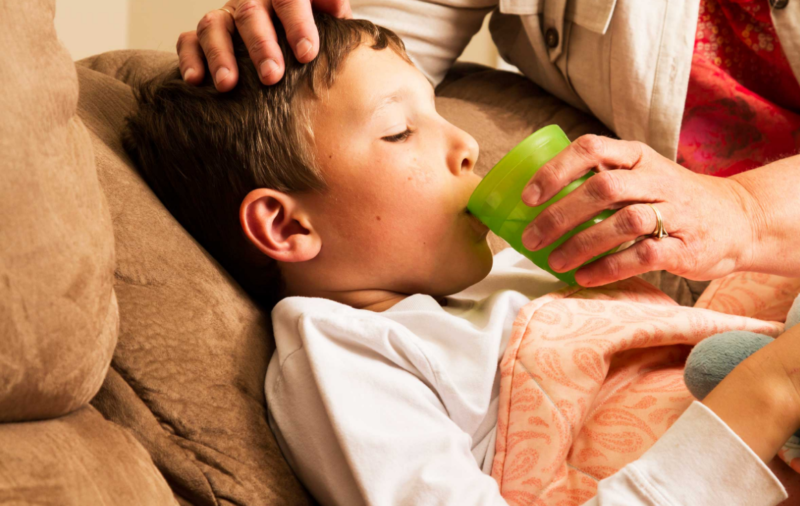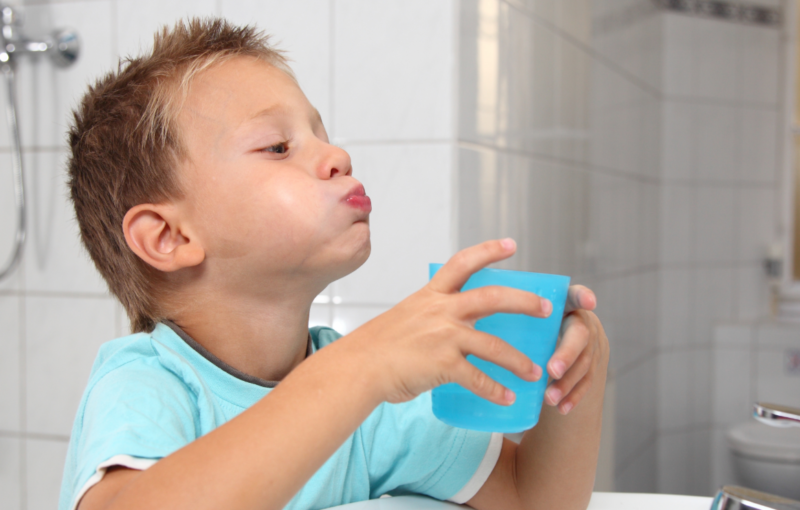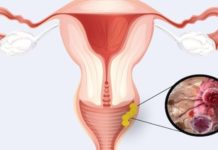Tonsillitis develops when the tonsils are infected with bacteria, viruses, fungi, and intracellular parasites. Symptoms and treatment of tonsillitis in children depend on the form of the course of the disease, the nature of the inflammation.
Material Content:
Causes of tonsillitis in children
Tonsils are formed from lymphoid tissue, protect the bronchi, nasopharynx, lungs from infectious agents that penetrate through the nose and mouth. On top of them are covered with recesses-gaps, which are first found with pathogenic microorganisms. The follicles are located inside, lymphocytes are concentrated in them, which fight against foreign agents.
Tonsil inflammation provokes dozens of microorganisms. The bacterial form of the disease is often caused by streptococci, staphylococci, meningococci, or a combination thereof. Viral tonsillitis develops when it is affected by herpes viruses, influenza, adenoviruses. Less commonly, tonsils are attacked by candida fungi and intracellular parasites - mycoplasma, chlamydia.
Pathogens are transmitted from the external environment by airborne droplets, contact-household methods from sick people or passive carriers of infectious agents.
Adverse factors contribute to the development of tonsillitis:
- decreased immunity;
- hypothermia;
- excessive psycho-emotional, nervous, physical exertion;
- inflammation of the mucous membranes of the mouth, gums and teeth: stomatitis, periodontal disease, gingivitis, caries;
- unbalanced nutrition;
- prolonged runny nose and nose diseases: polyps, adenoiditis, sinusitis, sinusitis; frontal sinusitis;
- violation of the structure of the tonsils: too deep gaps, adhesions, splices;
- recently transferred SARS, ARI.
Tonsillitis cannot be treated by itself without prior diagnosis and doctor's prescriptions. Inflammation of the palatine tonsils accompanies diphtheria, scarlet fever, mononucleosis. These diseases will require other therapies and medications.
Classification of Infectious Disease
In medical practice and everyday life, acute tonsillitis is called tonsillitis. It proceeds with pronounced symptoms, lasts up to 2 weeks.
In children, the following types of tonsillitis often develop:
- Catarrhal - occurs with superficial lesions, tonsils swell, redden.
- Lacunar - caseous or purulent exudate accumulates in the mouths of lacunae.
- Follicular - accompanied by an increase and suppuration of the follicles inside the tonsils.
Catarrhal sore throat lasts 2-3 days, then recedes or goes into severe forms - follicular, lacunar.
Chronic tonsillitis in children proceeds with blurred symptoms, exacerbations occur more often 3 times a year. Doctors distinguish between compensated and decompensated types. In the first case, painful changes affect only the tonsils, in the second, inflammation passes to neighboring and internal organs.
Symptoms and signs
Acute tonsillitis in a child is accompanied by manifestations of general intoxication - sweating, chills, weakness, headache, sometimes nausea and vomiting. The child refuses to eat, complains of pain when swallowing.
Upon examination, the following changes are noticed:
- the temperature rises above 38 degrees;
- glands swell, redden, become loose, become covered with a coating;
- lymph nodes increase under the lower jaw, behind the ears;
- with a lacunar form on the tonsils, there are point foci of purulent clusters;
- with follicular tonsillitis, granular white-yellow seals appear under the epithelium, sometimes they break out.
Chronic tonsillitis in remission occurs with mild symptoms:
- tickling, tingling in the throat after eating, difficulty swallowing;
- temperature increase in the evening to 37–37.5 degrees;
- repulsive breath;
- sleep disturbance;
- fatigue, distraction.
With exacerbation, signs of angina return. The decompensated form is sometimes accompanied by joint pain, heart, shortness of breath.
Which doctor should I contact, diagnosis
With inflammation of the tonsils, it is necessary to consult a pediatrician or pediatric otolaryngologist. The doctor examines the tonsils, palpates the lymph nodes.
Laboratory studies include:
- General blood and urine tests that show how far the inflammatory process has gone.
- Bacterial culture of the contents of the smear from the surface of the throat determines the type of pathogen, its reaction to different groups of antibiotics. In an acute form of the disease, in 80% of cases, streptococcal tonsillitis is diagnosed.
Sometimes a dentist examination is required to identify or exclude foci of infection in the mouth. In the chronic form, an ECG, an ultrasound of the kidneys, an x-ray of the sinuses are additionally prescribed. Then they are sent for consultation to a pediatric cardiologist, rheumatologist, nephrologist.
Treatment of tonsil inflammation in a child
With angina, the child is transferred to bed rest until the temperature drops and health improves. Therapy includes two areas: the destruction of the pathogen and the alleviation of symptoms.
Bacterial tonsillitis is treated only with antibiotics, penicillin group preparations are more often prescribed, they have a detrimental effect on a wide range of bacteria.
When the results of sowing come, if necessary, switch to a narrowly targeted tool. When infected with viruses, only symptomatic drugs are prescribed: antibiotics do not act on them, and the therapeutic effect of antiviral drugs with angina is not proven. The fungal form of the disease is treated with antimycotic drugs.
Symptomatic therapy includes the following drugs:
- Antiseptic solutions to reduce purulent foci: Hexoral, Octenisept, Miramistin.
- Antimicrobial sprays, lozenges: Ingalipt, Septolete, Faringosept.
- Nonsteroidal anti-inflammatory drugs to relieve heat, pain: Paracetamol, Ibuprofen.
Well-being will improve faster if you follow the following rules:
- Do not interrupt the course of antibiotic therapy ahead of schedule in order to avoid the resistance of microbes to the drug.
- Ventilate the room more often, maintain humidity at 60%.
- Feed the patient semi-liquid dishes - broth, cereals, mashed potatoes, as solid food injures the tonsils.
- Drink plenty of water with warm drinks: mineral water, compote, fruit drink, tea.
- After eating, gargle with infusions, decoctions of chamomile, sage, calendula. It should be borne in mind that such procedures, carried out more often 6 times a day, irritate the tonsils, reduce the effect of treatment.
- After normalizing the temperature, resume walking in the fresh air.
Chronic tonsillitis in children requires other methods of treatment, the task of parents is to prolong periods of remission, reduce the number of relapses. Pediatricians recommend reconsidering nutrition, a child’s lifestyle. Twice a year - in the fall and in the spring - take a preventive health-improving course. It includes cleansing the lacunae from plaque, washing the tonsils with antiseptics, physiotherapeutic procedures: laser therapy, UV, UHF. If conservative treatment does not lead to the desired results, other diseases develop, then the tonsils are removed surgically.
Possible complications
Therapy of acute tonsillitis takes 10-14 days, and health improves by 3 or 4 days. A child with a chronic form of the disease is registered with the otolaryngologist and is considered healthy when relapse does not occur within 5 years.
With delayed or incorrect treatment, complications develop:
- paratonsillar abscess;
- cardiological diseases: acquired heart disease, myocarditis, infectious endocarditis;
- kidney damage: pyelonephritis, glomerulonephritis;
- pathology of the bronchopulmonary system;
- skin diseases: psoriasis, eczema, neurodermatitis;
- joint inflammation: polyarthritis;
- infectious otitis media.
In advanced cases, the pathogen spreads through the circulatory system, sepsis develops.
Prevention of sore throat in children
You can reduce the risk of angina and exacerbations of inflammation in the following ways:
- During seasonal acute respiratory viral infections, treat the nose with oxolinic ointment, rinse your mouth with decoctions of herbs, do not drive the child to crowded places - shopping centers, cinemas.
- In time to treat acute respiratory infections, inflammation in the mouth, caries.
- Strengthen general immunity: feed balanced, walk more often.
- Temper the throat with rinses, drinks, gradually lowering the temperature of the liquid from 30 to 15 degrees.
- With a tendency to inflammation, recondition tonsils once every six months: cleanse gaps and treat with antiseptics.
Tonsillitis passes without consequences, in the future the risk of relapse is reduced, if the instructions of the otolaryngologist, pediatrician, as well as recommendations for prevention are followed.


